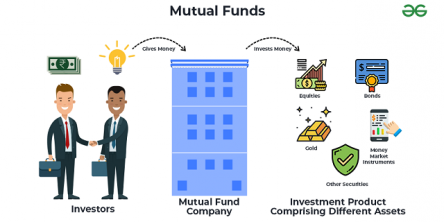5 Essential Accounting Tips for Freelancers

When it comes to freelancing, you have a lot of things to keep on top; your finances are one of the most important ones. When you’re working freelance, whether that’s for a range of companies or yourself as your own business, you are responsible for everything financial – from everyday banking right up to taxes.
Here are five tips that every freelancer can use to keep on top of their finances.
1. Do Your Research
This should be one of the very first things you do when you decide to go freelance, perhaps even beforehand. Removing that security blanket of the steady income that comes with a 9-5 stable job is a big decision.
You’ll need to find out what exactly you’re getting yourself into by going freelance. That means getting to know a bit more about the ins and outs of your industry, what it’s like behind the scenes, and what it takes to be the one running things. You’ll also need to make sure that you’re knowledgeable about what financial arrangements you’ll need to make.
2. Plan for Now…
Make sure you know how much (roughly) you’re going to need to get yourself started. Where will it come from? If it’s borrowed, how will you pay it back? Are you subsidising yourself from your savings, if so, how will you save that backup?
Create a budget to help you keep on top of income, profits and running costs in your first few months/first year so you can not only get yourself going. Make sure you know your figures well, what is profit, and what portion of the income needs to be rerouted into keeping yourself running?
One way to work out an average monthly ‘base wage’ to keep yourself afloat is to look at what you earned last year, then take that figure and divide by 12 and you have your average monthly earnings. Use this as the base for your budget.
3.…. and The Future
This means you’ll also want to plan ahead so that but also have a bit of s safety net in case you’re slow to take off or you run into any unexpected costs. One way to do this is to create an emergency fund. In general, you should be saving enough for at least six months – in both personal and business expenses.
This also means always keeping on top of taxes - both in terms of income tax and VAT. As you get paid, keep a running total and plan your taxes accordingly. Taxes are incredibly important, and they are not something you want to get wrong.
4. Get Bank Accounts That Work for You
Do you know that old saying ‘You should never mix business with pleasure”? That applies here too. If you’re working freelance, then it would be a good idea to keep your business and personal finances separate, which means: separate bank accounts.
Just make sure when you do that you are using bank accounts that work well for your needs, this will make your life 100x easier. Make sure that when you’re looking for a new account, you take the time to compare accounts. A lot of banks will offer you a specific type of business account that will keep your business finances safe and in check. A savings account will keep your emergency fund secure, and a higher level of current account will sometimes allow you account perks such as different types of insurance included, special customer rewards or special ID security features.
Not only will accounts like these help you keep your money organised, but they might also make your life easier with their bonuses and perks.
5.Track Everything and Keep Receipts
This one seems like a no-brainer, but you really do need to track everything when you’re freelancing as you are responsible for all of your own money.
That means if bills don’t look right, clients refuse to pay, or your taxes have an error on them you’re going to need to be able to fight your corner and provide proof something was (or wasn’t) done.
If you’re not keen on managing a whole host of physical files, then try getting acquainted with financial apps and software. Storing receipts, documents, and invoices in a way that makes them easy to record, organise, store and access will save time when it comes to filing your taxes, making claims, or proving your point. You can check here to learn more about Tax Planning and Preparation
There are now even smartphone app scanners you can use to scan receipts and documents to PDF, print, fax, email, and upload to your cloud storage.
Similar Articles
Car ownership offers convenience and mobility, but it also incurs costs that shouldn’t be taken lightly. Auto finance agreements allow people to own vehicles, however these contracts can be tricky to decipher.
For many ambitious Australian graduates, the dream of attending an Ivy League institution or a world-renowned global university represents the pinnacle of academic and professional aspiration
International transfers are essential for SMEs operating across MENA and global markets, yet they carry risks that can disrupt operations severely.
Most bookkeeping mistakes aren’t dramatic. They don’t show up as obvious errors on day one. Instead, they surface slowly, as numbers that feel slightly off, reports that take longer to prepare, or fixes that keep coming back.
Most business owners set up their first business banking account without a second thought. They go with whatever bank they personally use, or whatever bank their accountant mentions - and done deal.
Outsourcing debt collection boosts recovery rates, ensures compliance, and preserves client relationships—freeing your team to focus on core business tasks.
Save money on home & business essentials with bulk wholesale! Discover tips, product categories, and deals to maximize your savings.
Loud budgeting has taken over social media, with people openly discussing spending habits, saving strategies, and financial struggles. While this trend encourages transparency, it also adds pressure to meet certain expectations
Securing your financial future has become a necessity in today's world, and investing in mutual funds is one of the most popular ways to grow your wealth over time. Managing your money and investing in potential funds has become convenient and seamless with the help of the right online platforms









